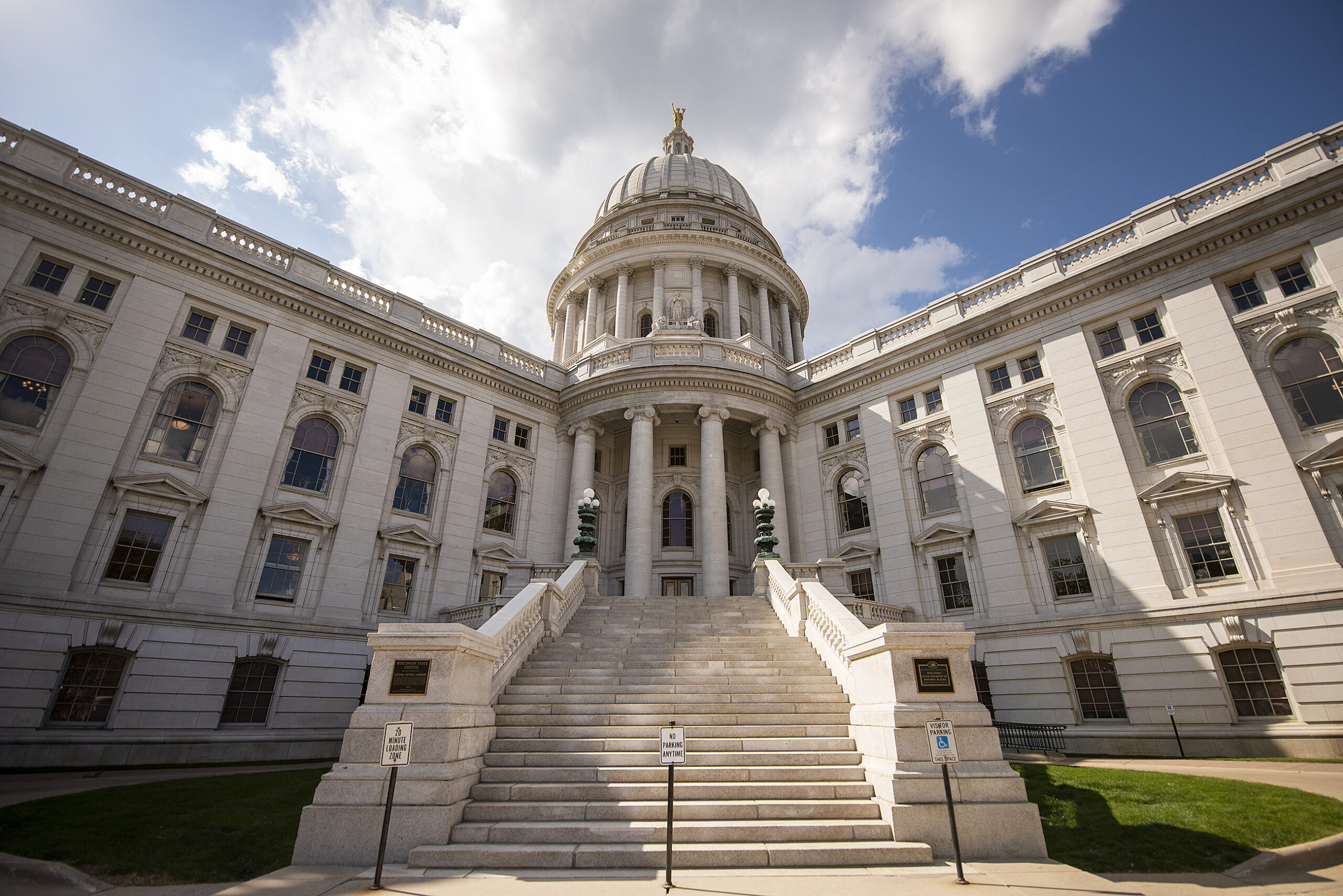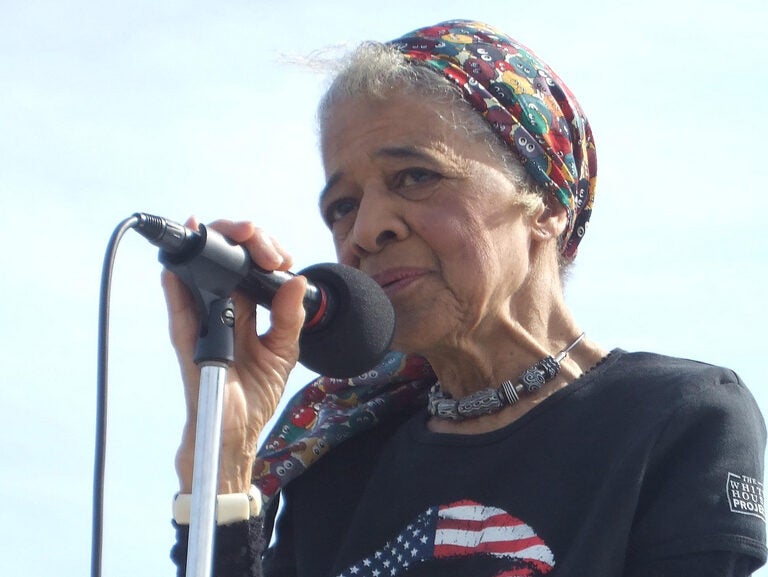In a joint meeting of the state Senate and Assembly education committees, Wisconsin lawmakers heard more than six hours of testimony on two bills that were meant to stop teachers from “indoctrinating” students on issues of race, sex and gender.
One bill would require Wisconsin school boards to make information about the learning materials and educational activities used for pupil instruction public. The other would limit the teaching of anti-racist and anti-sexist lessons that “promotes race or sex stereotyping,” including teaching “that one race or sex is inherently superior to another.”
School districts and charter schools where those concepts are taught would be referred to the state Department of Public Instruction, which would determine if a school district taught or trained on a prohibited concept, notify the district and give them time to adjust the lesson. If they didn’t, DPI would withhold 10 percent of the district’s state aid. The measure also allows parents to bring court actions alleging a district taught race or sex stereotyping.
News with a little more humanity
WPR’s “Wisconsin Today” newsletter keeps you connected to the state you love without feeling overwhelmed. No paywall. No agenda. No corporate filter.
The bills are part of a national trend. Other states, including Ohio and North Carolina, have debated similar bills, and some, such as Idaho and Oklahoma, have passed them.
Although the text of the legislation doesn’t include the term “critical race theory,” it came up repeatedly in lawmakers’ comments and public testimony, as well as in the introduction of the bill.
“This is a catch-all term, or an ever-changing term, to suit the needs of an argument,” said state Rep. Chuck Wichgers, R-Muskego, who co-sponsored the bills. “One of the most simplistic definitions I have seen is this: Critical race theory centers on the idea that racism is systemic, that racial injustice is woven into the fabric of many American systems and institutions, thereby causing disparities and perpetuating the oppression of people of color.”
Critical race theory is a conceptual theory to help explain how inequality gets reproduced and maintained in our society, designed as a graduate-level framework for understanding U.S. law and society. In recent months — and in the hearing room — its meaning expanded to describe a range of equity efforts and anti-racism teaching.
“The bill never says anything about critical race theory, but if that’s what you all wanted to address, maybe you should have included that in the bill,” said Ruben Anthony, president and CEO of the Urban League of Greater Madison, who testified against the bill. “When states across the nation are all glomming around critical race theory, it’s not authentic — if we have real issues here, which we do, we need to address them.”
Many testifying against the bill questioned its necessity, pushing back on the idea that so-called “critical race theory” was being taught in classrooms.
State Sen. Chris Larson, D-Milwaukee, promised $100 to anyone who could point him toward a teacher who was teaching critical race theory. He repeatedly asked the people testifying if they’d seen it taught in their classrooms.
“CRT is not something that when you walk into a classroom, it’s on the chalkboard, and the teacher walks in the class and says, ‘Today, we’re going to learn about CRT,’” said Amber Schroeder, a parent from Mequon who testified in favor of the bill. “CRT has infiltrated curriculums throughout the state and the country through reading lists, through reading materials, through programs.”
Those speaking in favor of making curriculum materials publicly available cited their own difficulties trying to get materials through public records requests. Libby Sobic, with the Wisconsin Institute for Law and Liberty, said her organization filed records requests with 10 school districts around the state requesting curriculum materials referencing terms like “critical race theory” and “anti-racism” and was quoted multi-thousand dollar fees to compile that information.
Opponents of the bill noted that in some cases, copyright concerns make it difficult for teachers to share the entirety of the textbooks, curriculums and other materials. They said schools’ ability to share step-by-step details of everything that happens in the classroom would also put too much pressure on teachers’ already limited time.
Several professional organizations and teacher training programs condemned the bills, including a representative of the University of Wisconsin-Madison’s School of Education and the Wisconsin School Social Work Association.
“The concepts in this bill will make it difficult for the social worker to practice morally and ethically,” said Patti Christel, a school social worker in Hartford. “If we are not able to discuss social problems around race and sex, how will we address the disparities in learning that are so clearly evident in our data across our state?”
Others referenced a recently passed Wisconsin law requiring teaching about the Holocaust in schools.
“The reason was clear — collective amnesia is deadly,” said Peter Bakken, coordinator of public policy at the Wisconsin Council of Churches. “Students need to know the history of such unthinkably horrible events so they will not be repeated. But they also need to understand how racism and bigotry find a home not only in individual human hearts, but also in national laws and policies.”
Some advocated for the bills to go even further. Former Milwaukee County Sheriff David Clarke, as well as others testifying in favor of the bills, suggested teachers be filmed or audio recorded so the content of their lessons could be reviewed in the same way police body cameras are used.
Before the hearing began, state Superintendent Jill Underly released a statement calling the bills “a gross disservice” to students.
“These bills present issues that get nowhere close to supporting our kids or their immediate needs,” Underly wrote. “They will not grow relationships between teachers and students, improve instruction, deepen understanding and trust from families, or advance the economic well-being of our communities. These bills are message platforms that seek to advance a belief that we cannot handle a challenging issue within a school; that teachers cannot be trusted to help kids think critically about what they see, hear and read.”
Neither bill has been voted on in a state Assembly or Senate committee.
Gov. Tony Evers’ office didn’t respond to an inquiry about whether he would veto the bills if they arrived on his desk.
Another GOP Bill Would Limit Government Training On Anti-Racism, Anti-Sexism
Lawmakers also heard public testimony Wednesday on a Republican-backed bill that would limit training on anti-racism and anti-sexism for state and local government employees.
Under the bill, state agencies and local governments would be barred from providing employee training that includes “sex and race stereotyping.” Specifically, trainings would not be allowed to convey “that one race or sex is inherently superior to another race or sex and that an individual, by virtue of the individual’s race or sex, bears responsibility for acts committed in the past by other individuals of the same race or sex.”
State Sen. Andre Jacque, R-De Pere, one of the bill’s sponsors, argued such training amounts to “divisive, anti-American propaganda.”
“These types of trainings not only run counter to the fundamental beliefs on which our nation has stood since its inception, but they also engender division and resentment within the workforce,” Jacque said during Wednesday’s hearing on the plan.
Jacque said a number of government employees have contacted his office with concerns about the content of required workplace anti-racism or anti-sexism training. He said those employees have told his office they have been “required to say that they benefit from racism or that there is racism embedded in the belief that America is the land of opportunity.”
Democrats on the committee pushed back on the proposal. They argued the proposed limits could have a chilling effect on necessary workplace training on things like sexual assault.
State Rep. Greta Neubauer, D-Racine, argued it’s appropriate for workplace training on anti-racism to include information about historic and systemic racism in the U.S.
“It’s an honest accounting of our history in this country,” she said.
Under the plan, state agencies or local governments that violate the training limits would face an immediate state funding reduction equal to 10 percent of their funding in the previous year.
Morgan Davis, director of the Department of Civil Rights for the city of Madison, told lawmakers Wednesday that such a penalty would cost Madison $1.3 million.
Davis argued against the bill, calling it “a fundamental attack on the speech rights of local government.”
“This is a deceptive attempt to place a gag order on any public discourse that acknowledges the institutions of slavery, Jim Crow, restrictions on voting rights, red lining, to name a few,” he said.
Other opponents to the proposal include the Wisconsin Coalition Against Sexual Assault, Wisconsin Council of Churches and the Wisconsin chapter of the National Association of Social Workers. No groups have registered in favor of the plan.
The bill has yet to be voted on in a state Assembly or Senate committee. If approved by both chambers of the Legislature, it would face an almost certain veto from Evers.
Wisconsin Public Radio, © Copyright 2026, Board of Regents of the University of Wisconsin System and Wisconsin Educational Communications Board.







